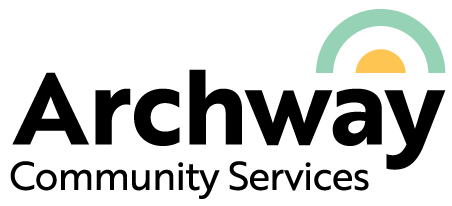
A level 4 Language Instruction for Newcomers to Canada (LINC) class
Deng uses public transportation to attend English language classes at Archway Community Services four days a week and to get to work. Since the bus strike began, every day is a juggling act. She sometimes walks half an hour both ways to make it to classes. Other times, she is able to hitch a ride and sometimes resorts to a taxi.
Her daughter is studying to become a nurse and is struggling to afford the $100 roundtrip taxi fare to Surrey five days a week. She doesn’t want to drop out of school but isn’t sure how much longer she can keep up with the extra costs.
“I try to work overtime, 12 hours, every day to get enough money to pay for the taxi,” says Deng. “No overtime, no taxi. It’s very hard. I’m always tired.”
Newcomers like the Dengs are less likely to have their driving licence and a reliable vehicle, and many of their friends and family are in the same situation.

Suzan Deng – LINC Student
English Language Training Manager, Paula Mannington estimates that up to 50% of their adult learners in the Language Instruction for Newcomers to Canada (LINC) program rely on public transportation.
“Newcomers are going to great lengths to continue learning English, because it’s key to integration and employment opportunities,” said Mannington. “Sometimes they’re putting themselves in unsafe travel situations because they don’t have many other options.”
“I don’t drive, so my landlord drives me to school on some days. When she can’t drive me, I miss school. The bus strike is a problem for me because I can’t buy groceries or go to the clinic,” said Hanna Drobot, originally from Ukraine.
“Some days my son can drive me to school, but when he can’t, I miss school. Work is a bigger problem because some days I have to take a taxi to work, which is very expensive,” shared Habil Aburasin, a newcomer from Sudan.
“The longer the strike drags on the harder it becomes to get by,” said Donna Lo, Manager of Archway Pathways to Integration. “On top of everyday activities, people are putting off medical appointments, getting social services, being able to apply for employment and more.”
“There needs to be more urgency to resolving the strike so the disruption to people’s lives can end,” said Lo.
Zainab from Afghanistan shared, “I have to use Uber and it costs me money. Transit workers have every right to protest. However, it has now been a month without services, and it is time for solutions!”
Transportation to services and employment was already a barrier before this strike.
Ana Sandoval, an immigrant from El Salvador, was actively working towards obtaining her BC driver’s licence before the strike as public transportation schedules didn’t always match her work schedule.
She is currently walking 50 minutes to get to her English class each morning and then walking to a local restaurant where she works in the afternoons. A friendly neighbour has been giving her rides when their schedules align but it’s not often.
“Please help,” Sandoval says, “I need to have the bus running again.”
Even those with a vehicle are experiencing disruptions.
“The bus strike is difficult for me and my family. My husband depends on the bus to go to work. Because my family has one vehicle, when I go to the LINC class, I must take my daughter to school and then my husband to work and I must pick up in the afternoons. All these trips add a lot of time to my day. It is burdensome and we now spend a lot of money on gas. Things are getting bad,” said Yunmi Mary Lee.
Rosalba used to take the bus daily. “As a newcomer, I like to do things by myself and be independent, for instance, to do my grocery shopping, visit church, or hang out with my friends. I feel that I have lost independence due to the bus strike.”
“I want to add that I do agree that the bus strike, because striking is a right under the Canada Labour Code. Nevertheless, this dispute is dragging on too long and it is affecting many people in serious ways. I think the parties need mediation and need a win- win. The bottom line is that we truly need the strike to be over. Please!”

“Please help, I need to have the bus running again.”

Habil Aburasin – LINC Student
